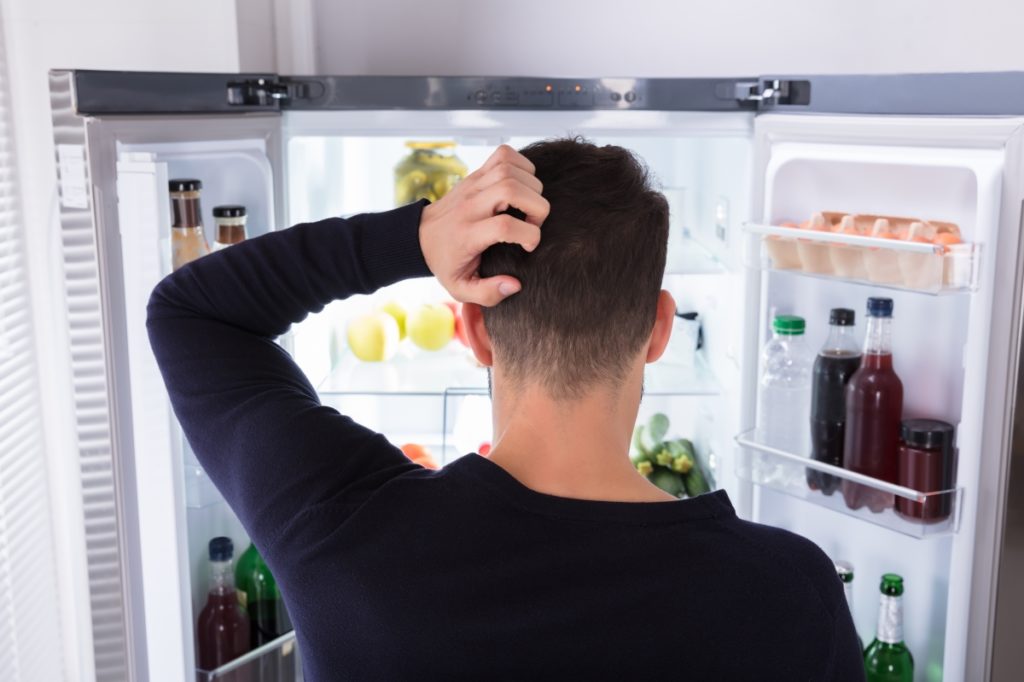Foods to Avoid During Addiction Recovery

Food is essential for the brain and body to function normally. Food fuels the body throughout the day by breaking down products into glucose. The glucose is then released into the bloodstream to be used for energy, or to be stored in the body for later. The body needs a variety of foods to thrive. While carbohydrates are great for a short-term burst of energy, the body also needs proteins and healthy fats to preserve for later use. Maintaining a balanced diet is the key to creating a healthy lifestyle in addiction recovery. Furthermore, it is also important to be aware of foods that can be damaging to your health or cause problems with recovering from substance abuse.

Most often, we are told of all of the good foods that we should eat. We are aware that we should not eat this or that, but why not? Many studies have shown that most addicts suffer from malnutrition and biochemical disorders, proving that our diet has a big impact on our health. Let’s take a look at the foods individuals in addiction recovery treatments should try to avoid, and why:
1. Additives and Preservatives
Although these are not food, they are found in a lot of products that we consume. Foods with additives and preservatives are the top killers to avoid. These disrupt digestion and create intestinal changes that permit oversized molecules into the bloodstream. This overworks the liver, which is probably already damaged and disrupts the immune system, making it more difficult to combat germs. Fresh, raw foods are packed with natural enzymes while processed foods have no enzymes left and are more difficult for the body to process. Overall, they put a damper on the body’s digestive enzyme reservoir.
On top of these foods not being good for the digestive system, many of them have been found to cause hyperactivity and learning difficulties in children. Next time at the grocery store, check the labels on the foods you buy.
These are a few of the additives to avoid: aspartame (artificial sweetener), MSG (monosodium glutamate), BHA (butylated hydroxyanisole) and BHT (butylated hydroxytoluene). These are added to cereals, chips, cookies, and more to preserve freshness, however, they have cancer-causing agents. Phosphates are another harmful additive. These are found in meats, baked goods, soft drinks, and fast foods. An international report has claimed that foods that include phosphates should label as bad for your health. They are known to cause heart disease.
2.Sugar
During recovery, people often crave sugar because it provides temporary relief from low blood sugar. However, consuming refined sugar only worsens matters because it provides no nutritional value and depletes the body of vitamins and minerals. Sugar comes in many forms and is found in many foods. According to many studies, you should check labels for words ending in –ose, such as dextrose, sucrose, zylose, galactose, lactose, ribose, and maltose.
Other words for sugar are: sorbitol, sucanet, sucanat, erythritol, diglycerides, disaccharides, glucitol, hexitol, inversol, isomalt, mannitol, xylitol, glucoamine, maltodextrin, malts, malted barley, evaporated cane syrup, sorghum, and high fructose corn syrup. Do not replace sugar with artificial sweeteners, as these are not good for you either. Try to replace sugar with natural sweeteners such as raw honey, molasses, raw cane sugar, and pure maple syrup.
3.Caffeine
Walk into any office or work environment and you will most likely see people with a cup of coffee to get them through the day. Many people in our life consume caffeine, but it is important to avoid it or consume it in moderation during addiction recovery.
Caffeine stimulates the adrenal glands and can lead to exhaustion, depressed immune system, low blood pressure, dizziness, lightheadedness, or blacking out when standing up. Women should be extra cautious of caffeine consumption because it depletes calcium absorption which can lead to osteoporosis.
4.Fats
Fats found in many types of food have often gotten a bad rep. The fats to avoid are hydrogenated and refined fats. These are found in margarine, shortening, and refined or hydrogenated oils. It is best to avoid these types of food during recovery. Remember that saturated and unsaturated fats are good for the body. These can be found in coconut oil, olive oil, butter, and vegetable oils such as sunflower, flaxseed and corn oils. These fats help us feel full longer and aid in stabilizing blood sugar.
Overall, it is best to avoid processed and refined foods. Check labels when buying food products and become a more mindful consumer. Your body will appreciate it, and your recovery will be more stable. What we put into our bodies has a direct effect on our mood, so it is vital to nourish your body with healthier food options to maintain a positive mindset. For those looking into a drug treatment center, check to see if they have a nutritionist who can assist you in eating more mindfully.
Contact us today online and let our recovery specialists walk you through the steps to a successful recovery.




